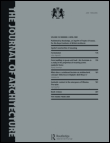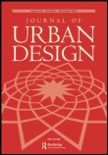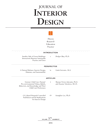
DESIGN ISSUES
Scope & Guideline
Navigating Contemporary Design Debates
Introduction
Aims and Scopes
- Interdisciplinary Design Perspectives:
The journal focuses on the intersection of design with various fields including ethics, technology, sociology, and politics, fostering a holistic understanding of design's impact. - Ethical and Moral Dimensions of Design:
A consistent theme is the exploration of ethical implications in design practices, emphasizing moral engagement and responsibility within the design community. - Cultural and Historical Contexts:
Design Issues delves into the historical and cultural contexts of design, analyzing how these factors shape design practices and ideologies. - Innovative Design Methodologies:
The journal promotes creative methodologies in design, encouraging the use of new tools and approaches to enhance the design process and outcomes. - Social Justice and Community Engagement:
A core focus is on design justice and community-led practices, highlighting the role of design in addressing social inequalities and fostering inclusivity.
Trending and Emerging
- Sustainable and Eco-centric Design:
Recent publications emphasize eco-centric design practices, reflecting a growing awareness of environmental challenges and the need for sustainable solutions in design. - Design Activism and Social Change:
There is an increasing focus on design as a tool for activism, highlighting the role of design in promoting social justice, community engagement, and political change. - Integration of Technology in Design:
Emerging themes include the integration of technology and digital tools in the design process, showcasing innovative methodologies that enhance creativity and collaboration. - Experiential and User-Centered Design:
A trend towards experience-centered design is evident, with a focus on understanding user interactions and the importance of empathy in the design process. - Interdisciplinary Collaboration:
The journal is increasingly publishing works that highlight collaborative efforts across disciplines, showcasing how diverse perspectives can enrich the design process.
Declining or Waning
- Traditional Design Theory:
There appears to be a decrease in articles focused on conventional design theories without critical engagement, as the journal increasingly prioritizes contemporary and socially relevant frameworks. - Purely Aesthetic Design Discussions:
Papers that center solely on aesthetic considerations without addressing broader implications or contexts are less frequent, indicating a shift towards more functional and ethical discussions. - Narrowly Defined Design Disciplines:
There is a noticeable decline in articles that strictly adhere to singular design disciplines, as the journal now favors interdisciplinary approaches that integrate various aspects of design. - Historical Case Studies with Limited Contemporary Relevance:
While historical perspectives remain important, there is a waning interest in case studies that do not connect to current design challenges or societal issues.
Similar Journals

Journal of Visual Art and Design
Bridging cultures through visual expression.Journal of Visual Art and Design is a pivotal academic platform dedicated to advancing scholarship in the realms of visual arts and design, published by ITB JOURNAL PUBL. With its ISSN 2337-5795 and E-ISSN 2338-5480, this journal serves as a rich resource for researchers, practitioners, and students alike, facilitating the dissemination of innovative ideas and critical research findings. As part of its commitment to accessibility, the journal provides open access to its publications, ensuring that knowledge in the visual arts and design fields is readily available to a global audience. The journal’s coverage spans from 2022 to 2024, encouraging a contemporary and relevant dialogue within the discipline. Although the current Scopus rank places it in the 10th percentile, the journal aims to foster scholarly exchange and inspire future advancements in visual arts. Located in Bandung, Indonesia, at the ITB Rectorate Building, the journal reflects the dynamic cultural landscape of its locale while addressing global trends in visual arts and design.

Journal of Architecture
Exploring the intersection of art and engineering in architecture.Journal of Architecture, published by ROUTLEDGE JOURNALS, TAYLOR & FRANCIS LTD, stands as a pivotal platform for scholarly discourse in the ever-evolving field of architecture. Established in 1996, this esteemed journal boasts an impressive impact factor, categorized as Q2 in Architecture and Q1 in Visual Arts and Performing Arts, reflecting its significant contribution to both disciplines. With a robust Scopus ranking positioning it in the 85th percentile among Visual Arts and Performing Arts and the 57th percentile within Engineering Architecture, the journal serves as an essential resource for researchers, professionals, and students alike. The Journal of Architecture features innovative research and thoughtful analysis that shape contemporary architectural practices and theories, encouraging interdisciplinary dialogue. Engaging with this journal allows readers to stay abreast of critical advancements and emerging trends, fostering a deeper understanding of architecture's role in societal transformation.

Journal of Urban Design
Pioneering insights into the art and science of urban spaces.Journal of Urban Design, published by Routledge Journals, Taylor & Francis Ltd, stands at the forefront of academia, providing a critical forum for discourse on contemporary urban design practices and theories since its inception in 1996. With an impressive impact factor and consistently ranking in the Q1 category across multiple fields—namely Arts and Humanities, Geography, Planning and Development, and Urban Studies—this journal is recognized for its significant contributions to the understanding and shaping of urban environments. Although it does not offer open access, its meticulously curated content remains accessible to those keen on exploring innovative urban design thinking. Researchers, professionals, and students alike will find valuable insights and methodologies aimed at enhancing urban spaces globally, making the journal a vital resource for those committed to the evolution of urban planning and sustainable development strategies.

Journal of Interior Design
Pioneering Research for Future Design Leaders.The Journal of Interior Design, published by SAGE Publications Inc., is a premier peer-reviewed academic journal dedicated to the field of interior design. Established in 1975, this journal has been a pivotal platform for disseminating cutting-edge research, innovative design practices, and critical theory in interior spaces. With an impressive Q1 ranking in the Visual Arts and Performing Arts category and a 95th percentile ranking among its peers in arts and humanities, the journal reflects the highest standards of academic excellence. Although it does not offer open access, it provides valuable insights and findings relevant for researchers, professionals, and students alike, enhancing the understanding of interior environments and their impact on human behavior and society. As the field continues to evolve, the Journal of Interior Design serves as an essential resource for thought leadership and scholarly discourse.

Ethics and Information Technology
Shaping Responsible Futures in Digital InnovationEthics and Information Technology, published by Springer, stands as a pivotal journal in the interdisciplinary field that bridges technology with ethical considerations. With an ISSN of 1388-1957 and an E-ISSN of 1572-8439, this journal serves as a key resource for scholars exploring the complex dynamics between information technology and ethical implications, helping to shape the discourse around privacy, cybersecurity, and digital governance. Ranking in the top quartile of both Computer Science Applications and Library and Information Sciences, the journal has attained impressive Scopus rankings, placing it at #25 out of 280 in Social Sciences and #156 out of 817 in Computer Science. This high standing reflects its significant impact and relevance in contemporary research, as well as its invaluable contribution towards fostering a responsible use of technology. Researchers, professionals, and students can benefit from its comprehensive studies and cutting-edge findings, making it a crucial platform for advancing knowledge in this essential area of study. The journal has been continuously published since 1999, with content converging through to 2024, ensuring that it remains up-to-date with the rapid advancements in technology and ethics.

ARCHITECTURAL HISTORY
Illuminating the Intersection of History and DesignARCHITECTURAL HISTORY is a renowned journal published by Cambridge University Press, dedicated to advancing the field of architecture through scholarly research and critical analysis. Operating under ISSN 0066-622X and E-ISSN 2059-5670, this academic journal plays a pivotal role in disseminating knowledge related to the historical and theoretical dimensions of architecture. Though currently not open access, it offers invaluable insights for researchers and professionals interested in the evolution of architectural practices, spanning from the year 2002 to 2009 and continuing from 2011 to 2023. With a Q4 ranking in Architecture and a Q3 ranking in Visual Arts and Performing Arts as of 2023, ARCHITECTURAL HISTORY is well-positioned to contribute to the ongoing discourse in these fields. Furthermore, it holds commendable placements within the Scopus rankings, specifically 322/667 in Visual Arts and Performing Arts and 139/189 in Architecture, reflecting its growing influence. This journal serves not only as a platform for in-depth research but also as a critical space for scholarly exchange, making it an essential resource for students and academics alike who aspire to deepen their understanding of architectural heritage and its impact on contemporary practices.

ARQ
Championing critical thought in the heart of Chilean architecture.ARQ, published by the Pontificia Universidad Catolica de Chile in the School of Architecture, is a pioneering open access journal established in 2001 that significantly contributes to the fields of architecture, conservation, and the visual and performing arts. Based in Santiago, Chile, this journal provides a vital platform for disseminating innovative research and critical discourse, showcasing diverse perspectives from scholars and professionals alike. With its impact evident in its prestigious Scopus rankings—placing it within the 44th percentile of Visual Arts and Performing Arts, the 26th percentile in Conservation, and the 23rd percentile in Engineering Architecture—ARQ demonstrates a commitment to elevating discourse within its discipline. The journal’s current categorization into different quartiles reflects its evolving scope and its aim to engage with contemporary challenges in architecture and related fields. Additionally, ARQ offers comprehensive open access options that enhance visibility and accessibility for its readership, fostering a collaborative and informed academic environment.

She Ji-The Journal of Design Economics and Innovation
Transforming Ideas into Value-Creating InnovationsShe Ji - The Journal of Design Economics and Innovation is a pioneering Open Access journal published by Elsevier since 2015, based in the Netherlands. With its unique focus on the intersection of design, economics, and innovation, this journal serves as a vital platform for researchers, professionals, and students who are keen on understanding the complexities of designing value-creating innovations. Consistently recognized for its high impact, She Ji holds a prestigious Q1 quartile ranking in both Economics and Education, while maintaining a strong presence in Management of Technology and Innovation and the Visual Arts sector. This reflects its commitment to fostering interdisciplinary dialogue and advancing knowledge in the rapidly evolving fields of design and economic theory. Researchers seeking to disseminate their work can benefit from the journal's robust open access model, ensuring wide visibility and accessibility to their findings. With a commitment to excellence, She Ji continues to shape thought leadership in its field and is an essential resource for anyone involved in the integration of design thinking with economic innovation.

METU Journal of the Faculty of Architecture
Connecting scholars and practitioners in the realm of architecture.METU Journal of the Faculty of Architecture is a reputable academic publication dedicated to advancing research and discourse in the field of architecture. Published by MIDDLE EAST TECHNICAL UNIVERSITY in Turkey, this journal serves as a vital platform for scholars and practitioners, addressing both theoretical and practical topics relevant to contemporary architectural studies. With an impact factor that positions it in the Q3 category for architecture as of 2023, and a Scopus rank of #133 out of 189 in Engineering Architecture, the METU Journal is an influential resource for innovative ideas and studies. Encompassing a wide range of scholarly articles, it fosters academic collaboration between researchers and professionals, making it essential reading for anyone passionate about the evolution of architecture. Though not open access, it provides crucial insights and rigorous research from 2008 up until 2024, contributing significantly to the global discourse on architectural practices and theories.

Landscape Architecture Frontiers
Advancing sustainable design through innovative research.Landscape Architecture Frontiers, an esteemed journal published by Higher Education Press, serves as a pivotal platform for the dissemination of innovative research and critical thinking within the field of landscape architecture. Recognized for its commitment to advancing global discourse on sustainable design, environmental stewardship, and urban ecology, the journal's content is crucial for researchers, professionals, and students alike who are dedicated to shaping the future of landscape architecture. With a diverse range of topics covered, including landscape planning, restoration ecology, and cultural landscapes, this journal aims to foster interdisciplinary collaboration and promote best practices in the discipline. Although specific metrics like the impact factor and HIndex are not provided, the journal's reputation within the academic community underlines its significance in contributing to ongoing education and professional development in landscape architecture. For those interested in open access options, Landscape Architecture Frontiers encourages engagement and wider readership through its research, making it an essential resource for anyone passionate about the transformative power of landscapes and public spaces.